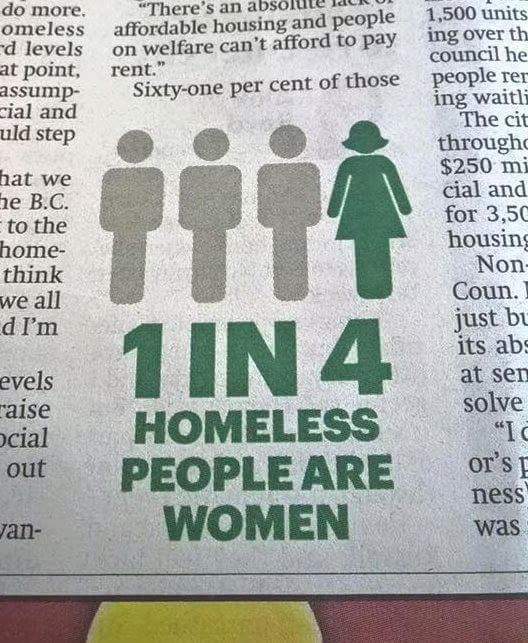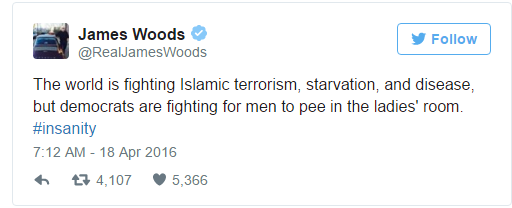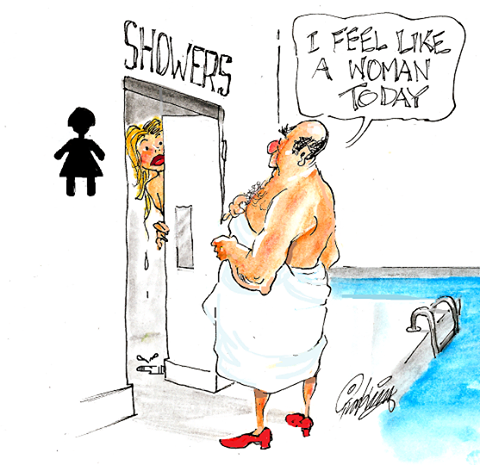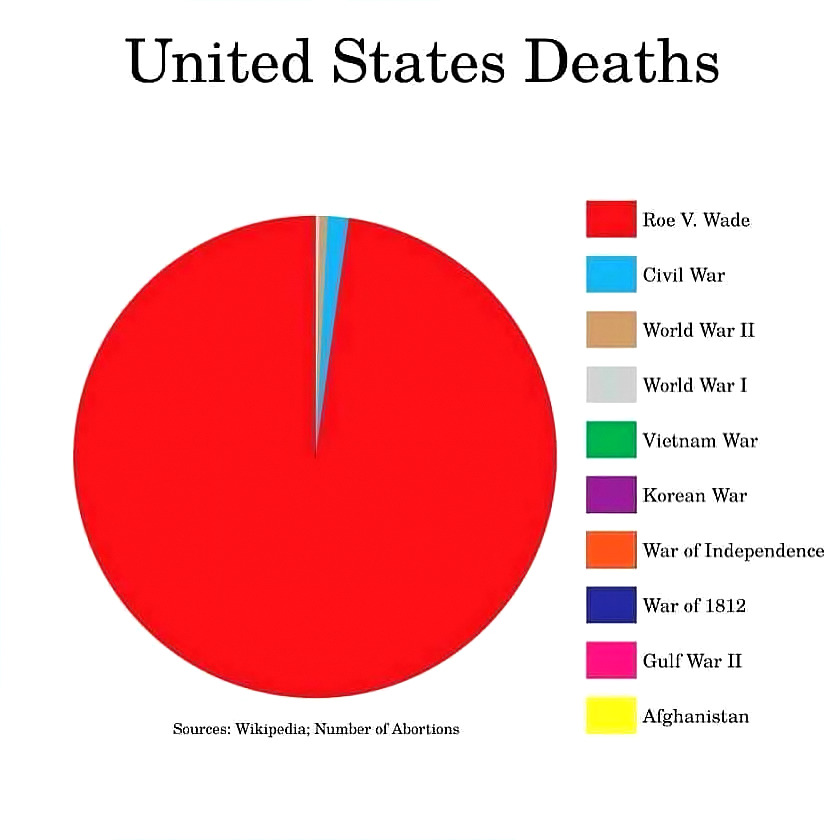Societies are successful when their policies and practices align with reality. Success for a society means the ongoing ability to provide resources and safety to ensure that children can grow to maturity, and in turn, have children of their own. Once this basic necessity is ensured, success can also be measured by life-span, low infant mortality, growth in scientific and mathematical understanding, in political participation and freedom, and in literary, musical and artistic output.
At the most basic level, if one group of cave dwellers insisted on hunting for mammoth in rugged mountains were mammoth were few in number, they would be less successful than another group who hunted on the plain where mammoth where plentiful. If one society believes the universe is worth investigating, and is ordered according to rules which are consistent and can be understood, such a society will be more successful than one which believes nature is ruled over by a god, or gods and demi-gods, so fickle that any attempt at understanding nature is doomed to failure, or a society which believes nature is an illusion, or that matter is intrinsically evil and not worth investigating.
The belief that the universe is worth investigating and can and should be investigated is so familiar to us that it seems obvious. But it was the view of no one at all until 2,000 years ago, and has become the majority view of mankind only in the last one hundred years. It has become the majority view of mankind not so much because of any direct evidence that it is true, but simply because it works.
The alignment with reality that leads to success for a society is not simply a matter of insight into the nature and rules of physical reality, but also of a realistic assessment of human nature. For example, socialism has never worked in practice and never will work, because it fundamentally misunderstands human nature. It is too generous in its assessment. It is difficult to motivate or inspire people to take pains and labour if they do not see some benefit of their work flowing to themselves or their families.
Because the most basic requirement for a successful society is to provide conditions in which children can be raised and go on to raise future generations, societies everywhere have taken measures to recognise and protect the family. The choice to live together and raise children has been regarded as something in which the wider society has an interest. This is more than respect for and celebration of the mating/loving relationship between male and female. In almost every known society there is official recognition by the community of long term sexual relationships between male and female, which involves notions of binding or tying together, from which exit is made difficult, and outside of which sex is regarded as illicit, or at least discouraged or viewed as not fully meaningful.
For most of the last 2,000 years, the West has regarded marriage as being between one man and one woman for life. The Western tradition includes other requirements before a couple can be considered married. Free consent must be given by both parties. If one party is unable or unwilling to consent, no marriage has taken place. There can be no coercion. This means that neither party to the marriage can be intoxicated or otherwise impaired to the extent that there could be doubt about his or her ability to understand and enter freely into the marriage agreement. The parties must be of marriageable age. How this has defined has varied, but in the West it has meant as a minimum that both parties must have passed through puberty. The parties must not be within restricted degrees of relatedness. The list of prohibited degrees included in the English Prayerbook forms the basis for law in most English speaking countries and prohibits marriage between close relatives, but not cousins. The relationship must include the reproductive sexual act. A marriage which is not consummated may be annulled; it was never a marriage.
Other societies have had varied these requirements. In some, a man may have more than one wife. In a very small number, a woman may have more than one husband. In some societies the marriage of older men to very young women is common. Others have different rules about how closely related the parties can be. In every society, however, the relationship is regarded as a permanent and civilly or religiously recognised and bonded sexual relationship between male and female.
This is a very different view of marriage to the rather cloudy notion that has overshadowed recent discussion. Marriage has not in any previous society ever been regarded as purely a matter for the parties concerned. Indeed, part of what makes a marriage is the public commitment, and public recognition and recording of this commitment. Marriage is not simply a relationship in which there is respect and care for one another, although those will be part of any successful marriage.
For example, imagine two brothers, one seriously disabled. They share a house. One has devoted his life to caring for the other. This is clearly a relationship based on a high degree of trust, love, and commitment. But almost no one would describe this relationship as a marriage, even if the two expressed a wish that they be considered married. What if they began having a sexual relationship? If they then asked their community to recognise their “right’ to marry, and went through a form of ceremony claiming as much, would that mean that a marriage existed between them? If not, why not?
A few days ago news outlets reported a mother and daughter being arrested for incest after living together in a sexual relationship after having been through a marriage ceremony. http://www.people.com/article/what-you-need-to-know-about-patricia-spann-the-oklahoma-mother-who-married-her-children The mother had previously married her son. That marriage had been annulled at the son’s request on the basis that it was incestuous and therefore not a genuine marriage. The mother and daughter are both adults and entered freely into the relationship. Are they in fact married? If not, why not?
Some people in such relationships claim they are genetically predisposed to be sexually attracted to close relatives. They are born with urges which makes it difficult for them to form sexual relationships with others. Sex with close relatives seems right and normal to them. If they were born that way, they ask, how can it be wrong? In recent years there have been reports of people marrying dogs, dolphins, inanimate objects such as bridges, and even themselves, a state of being called sologamy. Most people would not consider these relationships marriages, although they would probably be content to let people in them call themselves married if they wanted to, as long as others were not forced to agree.
One argument for not regarding those relationships as marriages, no matter how much care and respect the partners have for one another, is that no societies ever, anywhere have done so. Whatever other variations there have been in understanding what a marriage is, it has never included relationships with animals, or with oneself. Nor has it ever included relationships with members of the same sex. Even in societies which had a high degree of tolerance for homosexual relationships it was never suggested that those relationships were identical in nature and function and in their meaning to society as a long-term relationship between male and female.
This is not to suggest that those relationships are inferior. There may be homosexual or polyamorous or inter-species relationships which are every bit as caring, respectful and committed as heterosexual relationships. It is simply recognising what ought to be and until recently was, obvious; that they are not the same thing.
I asked a random sample of friends whether they thought it would be appropriate for the government to insist that everyone agree it was a marriage when 1. A woman married a dolphin 2. A group of three men marry each other. 3. A man marries himself. The answers were no, no (with one exception) and no. The one exception was “Why shouldn’t they, if they want to. They are not doing anyone any harm.” But she had missed the point. The question wasn’t about whether it was acceptable for the three men to go through a commitment ceremony and think of themselves as married, but rather, whether it would be appropriate for the government to force everyone else to agree.
When I asked why these things should not be considered marriage, or rather, why the government should not insist that everyone agree they are, the answers were remarkably uniform. Essentially; “It’s silly. They are not the same thing.”
Words are meaningful not only because of what they include, but because of what they exclude. For example, the word cat is meaningful because it includes cats, and also because it excludes all other objects, including other four legged mammals. Some objects are in (all cats) and some objects are out (all other things). Let’s say some squirrels felt distressed at being excluded from the world of catness. They begin to call themselves cats. No one much minds. But then they begin to insist that other animals also call them cats. “Don’t you believe in equality?” they ask. It is hard to argue with that. Everyone wants to be on the side of equality. So eventually the government passes a law saying that all animals are cats, and no one has the right to discriminate. It is hard to argue with that. No one wants to be guilty of discrimination.
Except for one thing. Squirrels are not, in fact, cats, and therefore are not equal to cats. Nor are horses or chimpanzees. Even if they want to be. And this very useful word, cat, is no longer useful at all, because its meaning has become so wide, so equal, so non-discriminatory, that it has no meaning at all. If a word can mean anything, it has no meaning at all.
Sometimes SSM activists claim that redefining marriage will not affect anyone but themselves. It won’t affect anyone else, they claim, so why should anyone else even have a say?
How would legitimising sex with minors affect your relationship with children you know? It would, even if you never had any such intentions towards them, because it would change the whole dynamic of child/adult relationships.
How would allowing brother and sister to marry affect your relationship with your siblings? It would, regardless of your feelings for your siblings, because it would change the way siblings relate to one another. And if you object to a father marrying a daughter, or two brothers marrying each other, what is wrong with you? Don’t you believe in marriage equality? Haven’t we moved past the time when society can tell people who to love?
Any change to the definition of marriage affects all existing marriages. We thought we were entering into one sort of covenant, now it turns out that we have actually entered into something quite different, something other than an open to life, lifetime commitment between one man and one woman.
Forcing people to call a variety of types of relationships by one word will not alter the fact that they are different. This is not a religious judgement. It does not suggest that gay relationships are less loving or noble. They are just different.
Those who oppose the redefinition of marriage are not trying to stop anyone doing what they want. SSM activists are the ones who want force others to change their behaviour. Anyone who doubts this is simply not paying attention. In Australia, same sex relationships have exactly the same rights under law relating to succession, taxation, benefits, superannuation, etc, etc. People in same sex relationships are free to go through a ceremony, invite their friends, get dressed in white, have a wedding cake, go on a honeymoon. The proposed changes in the law will not change what same sex attracted people can do, and are not intended to. They are intended to force everyone else to agree, or pretend to agree, that two things that are different are the same.
This article lists a few of the changes in the UK since marriage was redefined there. https://www.spectator.com.au/2017/09/whats-changed-in-britain-since-same-sex-marriage/
In other jurisdictions in which marriage has been redefined, Christian, Jewish, Buddhist and Muslim businesses, and anyone who believes what everyone believed about marriage until twenty years ago, have been subject to Gestapo type targetting and persecution.
The notion of “marriage equality,” that is, that a relationship between two men or two women is in every way identical to a lifetime commitment between a man and woman, and has the same meaning to society, rests on the claim that gender is a social construct which has no basis in reality. If there are real differences between men and woman, then a relationship between two men is a different thing from a relationship between a man and woman. Consequently, coercing people to agree that two men or two women can be married, is inextricably linked to attempts to force people to accept “gender fluidity.”
In Canada, children can be removed from their family home if parents do not affirm their gender choices and encourage and assist “gender transition” (ie, life-changing and destructive hormone therapy and surgery) if the child desires it. California is currently considering legislation which would make it a jailable offence to call someone by other than their preferred pronouns.
Demands to redefine marriage are not about tolerance for homosexual acts, or for same sex attracted people. Their relationships already have equal status in every way relating to succession law, benefits and taxation.
If same sex attracted people want to say their relationships are exactly the same as a life-time commitment between a man and woman, and mean the same thing to society, most people would not be bothered about this.
If they want to go through a ceremony and say they are married, most people would wish them well.
But if they want to get the government to force everyone to agree with them, that moves over the line from the rightful and realistic expectation of tolerance, to Stalinist enforcement of compliance.
The campaign to redefine marriage is not about letting same sex attracted people do what they want. They already can. It is about demanding the government create a society in which no one is permitted to disagree. That is not tolerance and freedom. It is the exact opposite.









